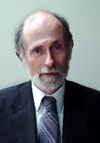Dealing with Paramedics | The Life of a Hotel Doctor

“Welcome to Le Mondrian. Enjoy your stay,” announced the attendant, giving the revolving door a push. I smiled my thanks but the canned greeting meant he didn’t recognize me. Staff at my regular hotels recognized me; Le Mondrian, an upscale hotel on the Sunset Strip, didn’t call as often as it should.
The guest, a Mr. Johanson, explained that he was suffering abdominal pain. Abdominal pain with vomiting or diarrhea was an easy visit, invariably a stomach virus. In their absence, it became tricky. In young women, abdominal pain could mean a gynecological problem, a hornet’s nest. Isolated pain in the elderly brought to mind half a dozen ominous possibilities, and this guest was sixty-three.
Mr. Johanson’ temperature was normal. His abdomen was soft, which made an urgent surgical problem unlikely.
“So you don’t think it’s food poisoning,” he asked.
Everyone with an upset stomach blames their last meal, I explained. But it’s rarely the culprit. I wasn’t certain what was going on. It may have been a kidney stone, although the location wasn’t typical. Maybe bowel spasm, but he’d never had an irritable bowel.
“My plane leaves at midnight.”
A perk of hotel doctoring is the universal yearning to go home. I’m always happy to turn responsibility over to a guest’s family doctor - provided it’s safe to travel. Many guests required a firm hand to keep them off their plane.
“I can’t find anything that looks like an emergency,” I said. “It might go away. I’ll give you some medicine, but if you have a lot of pain I don’t want you to get on the plane. I promise to call in three hours. Then we’ll make our decision.”
He agreed. I handed over a small box of pills - not pain medication but Donnatol, an ancient bowel remedy. Writing my encounter note, I summarized the conversation, including Johanson’s promise not to travel without permission, and he signed it. In the event something terrible happened after Johanson broke the promise, this was supposed to protect me from a malpractice suit. In fact, patients have sued under these circumstances, their lawyers arguing successfully that the doctor should have tried harder to convince his client.
His pain was no better, he admitted when I called. Maybe worse. I told him he needed an ultrasound or CAT scan. The Cedars ER was only a mile away.
“That sounds like a lot of trouble,” he said. “Maybe you could check me out first.”
There was zero chance of me changing my mind, but I couldn’t risk him staying in the room. As soon as I arrived, he informed me the pain was worse, and one look convinced me he needed attention.
The paramedic ambulance arrived in a blaze of flashing lights and sirens, accompanied by fire engines. After two minutes of silence, I heard the rumble of heavy boots and baritone male chatter in the corridor. Four burly men strolled through the open door, two in full fireman regalia.
The younger paramedic set a large fishing-tackle box on the floor near the bed. The senior, lean and fifty, with a gray pencil moustache glanced at me and my bag, registered my presence, and thereafter ignored me
“So what’s happening here?” asked the older paramedic, addressing the entire room. His wife answered. After recording the details, the paramedic bent over Mr. Johanson.
“Got an upset stomach?”
“I suppose so.”
Pulling back the covers, he poked at the man’s abdomen. “Does that hurt?”
“It doesn’t hurt when you push. But it hurts.”
I watched as he took the man’s blood pressure.
“One fifty over eighty-two. Pulse is a hundred.” Unremarkable. “Sounds like you ate something disagreed with you. What do you think?”
“Maybe. I don’t know...”
“Does it feel like indigestion? Do you have a sensitive stomach?”
They don’t want to transport him, I thought uneasily. Paramedics followed the rules with life-threatening symptoms like chest pain, bleeding, coma. Most bellyaches were not serious. Having been called out on too many frivolous upset stomachs, they had grown cynical. The paramedic was asking leading questions, hoping the guest would admit his ailment was trivial. I considered interrupting to deliver a tactful explanation of the correct way to take a medical history. Fortunately, the man suddenly heaved himself to a sitting position and vomited, a few specks striking both paramedics.
They exchanged glances. “We’d like to take you to the hospital,” said one.
As everyone prepared to depart, I remembered another distressing consequence of calling paramedics: not getting paid. I could never persuade myself to bring up the subject of money in such a distressing situation. Occasionally a family member did so, but usually he or she was too distracted.
Remembering her manners as she prepared to follow the paramedics, Johanson’s wife turned to me. “Thank you for coming so quickly, Doctor Oppenheim. We’re terribly grateful.” I smiled modestly, silently directing thoughts of payment in her direction. ESP occasionally works with my own wife but never otherwise. She hurried off.
